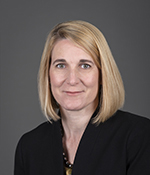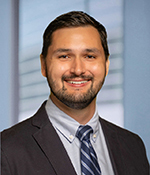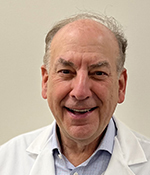The AAOS Leadership Institute® (ALI) continues to enhance its program offerings by introducing a Level 2 module focused on professionalism. This module is a foundational learning concept designed to broaden members’ understanding of the topic, specifically AAOS’ Standards of Professionalism and the AAOS Professional Compliance Program (PCP).
“In medical school, professionalism and ethics are often only covered briefly, if at all; however, the lessons learned do not always make sense until you begin to put the principles to practice,” said James Saucedo, MD, MBA, FAAOS, co-chair of the AAOS Board of Councilors (BOC)/Board of Specialty Societies (BOS) Professionalism Committee. “The new professionalism module is invaluable for filling any potential gaps and serving as a refresher on the Standards of Professionalism that every AAOS member agrees to commit to their daily interactions with patients and colleagues or during legal proceedings.”
AAOS Now spoke to Dr. Saucedo; Andrea Herzka, MD, FAAOS, co-chair of the BOC/BOS Professionalism Committee; and Thomas Fleeter, MD, FAAOS, chair of the Committee on Professionalism, to discuss the benefits of the new module. “The curriculum was developed to provide members with a strong understanding of the Standards of Professionalism in orthopaedics to help avoid an inadvertent breach; address any misconceptions; and better understand the process for reviewing, hearing, and adjudicating complaints through the PCP when a violation occurs,” Dr. Herzka explained.
Dr. Fleeter further emphasized the importance of familiarizing oneself with these standards, highlighting that “a lot of what is covered is common sense––which is to conduct yourself professionally, disclose all conflicts of interests, maintain competence, be professional in all relationships, conduct research in accordance with regulations, and understand what you can and cannot claim in advertisements.”
He also advised that members fully understand the Standards of Professionalism regarding legal proceedings when orthopaedic expert opinion or testimony is needed. “This is typically an area where members get caught up, and many compliance matters of grievance stem from this standard. It is important to remember that, as an expert, your testimony and opinions must be unbiased and based on fact, not sympathy for the patient or the amount of money tied up in litigation,” Dr. Fleeter added.
Also collaborating on the module were Robert H. Sandmeier, MD, FAAOS; James W. Barber, MD, FAAOS; and Vinod K. Panchbhavi, MD, FAAOS. The workgroup focused on creating engaging content that demystifies the process. For example, the curriculum includes theoretical scenarios based on real events. It explains how AAOS conducts robust due diligence during the PCP process to ensure that both sides are fully heard, and all decisions are derived from a thoughtful, careful, and inclusive process.
Created in 2020, ALI aims to develop new leadership talent within the ranks of AAOS membership, through a series of educational content, training, networking, and mentoring opportunities. Structured in four consecutive levels, the program equips future leaders with the essential tools to properly prepare for AAOS volunteer roles. To learn more about becoming an AAOS volunteer leader, visit aaos.org/leadershipinstitute.
Jennifer Lefkowitz is a freelance writer for AAOS Now.


